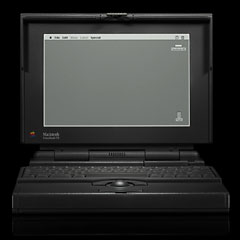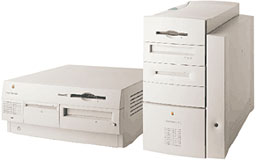WordPress is a great, powerful, extensible content management system (CMS), but it can take a while to really figure things out. Tags fall into that category.
 As I’ve been using tags, I discovered that WordPress creates an index page for each tag. If I use the tag PowerBook, it creates an index page listing all posts that have PowerBook as a tag. If I use PowerBook G3 or PowerBook G4 as a tag but not just PowerBook as a tag, those posts will not appear on the PowerBook tag index.
As I’ve been using tags, I discovered that WordPress creates an index page for each tag. If I use the tag PowerBook, it creates an index page listing all posts that have PowerBook as a tag. If I use PowerBook G3 or PowerBook G4 as a tag but not just PowerBook as a tag, those posts will not appear on the PowerBook tag index.
What this means is that tags should never be unique. That defeats the purpose, which is to create an index page for every post using the same word or set of words. There’s no point in creating a one-item index page.
Neither should tags be too generic. For instance, upgrade isn’t very helpful, as it might be an upgrade for an early Mac, a modern one, a Mac clone, an operating system, a piece of software, or a driver. The same would go for Mac OS X, iOS, iOS update, review, and a host of other tags that just cover too much territory.
 Be more specific without being overly specific. More helpful tags could be Mac Plus CPU upgrade, Mac mini drive upgrade, PCI CPU upgrade, iOS 7 update, and so on.
Be more specific without being overly specific. More helpful tags could be Mac Plus CPU upgrade, Mac mini drive upgrade, PCI CPU upgrade, iOS 7 update, and so on.
I’ve used a lot of too specific tags, and it’s something I’m working to fix. It might make sense to index all 12″ PowerBooks or all Titanium PowerBooks, but it doesn’t make sense to have an index for the 400 MHz Titanium PowerBook G4. We are at work eliminating the too vague and too specific tags now that we’ve learned how WordPress uses them.
Searchwords
 That said, there should be a way to quickly find a specific page or set of pages, especially when using the WordPress editor to create links. A searchword should be unique or have a very limited focus. For instance, pb170 is unique to the PowerBook 170 profile and pages specifically about the PowerBook 170.
That said, there should be a way to quickly find a specific page or set of pages, especially when using the WordPress editor to create links. A searchword should be unique or have a very limited focus. For instance, pb170 is unique to the PowerBook 170 profile and pages specifically about the PowerBook 170.
Every post on Low End Mac should have at least one searchword, and many pages may have two or more. The number should be limited to make it easy to find specific pages.
Our style is to list searchwords as the last item of a post.
Keywords
Another category we’ve created is keywords, which will sometimes be the same as searchwords, sometimes be the same as tags, and sometimes be something else. In the Twitter age, think of them as things you hashtag, so #powerbook170 appears as a keyword on the PowerBook 170 page.
 These are words you might use when discussing a range of computers, such as #g3powermacs on Twitter and in other contexts. Keywords are not case sensitive, so you can type them without using the shift key – or with it if you so desire, as we do with #LowEndMac.
These are words you might use when discussing a range of computers, such as #g3powermacs on Twitter and in other contexts. Keywords are not case sensitive, so you can type them without using the shift key – or with it if you so desire, as we do with #LowEndMac.
Our style is to have keywords the third-to-the-last item in a post, followed by a short link created using goo.gl and then our searchwords.
Summary
Tags make it easy to link posts covering the same subject, searchwords simplify finding or linking to a specific page, and keywords can be useful both within the site and when discussing posts elsewhere, such as Twitter, Facebook, and Google Plus.
Keywords: #tags #searchwords #keywords
Short link: http://goo.gl/lVyAsy
searchword: tagsinwordpress

